Theological consultations between the Russian Orthodox Church and the Coptic Church begin at the Moscow Theological Academy.
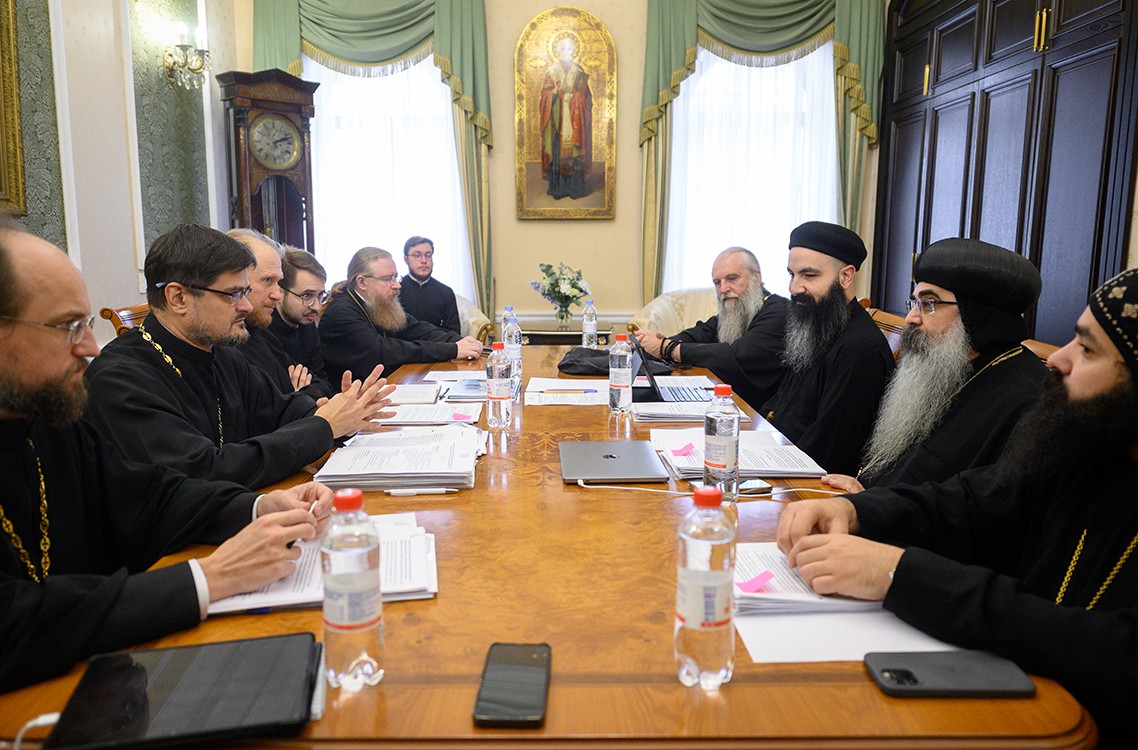
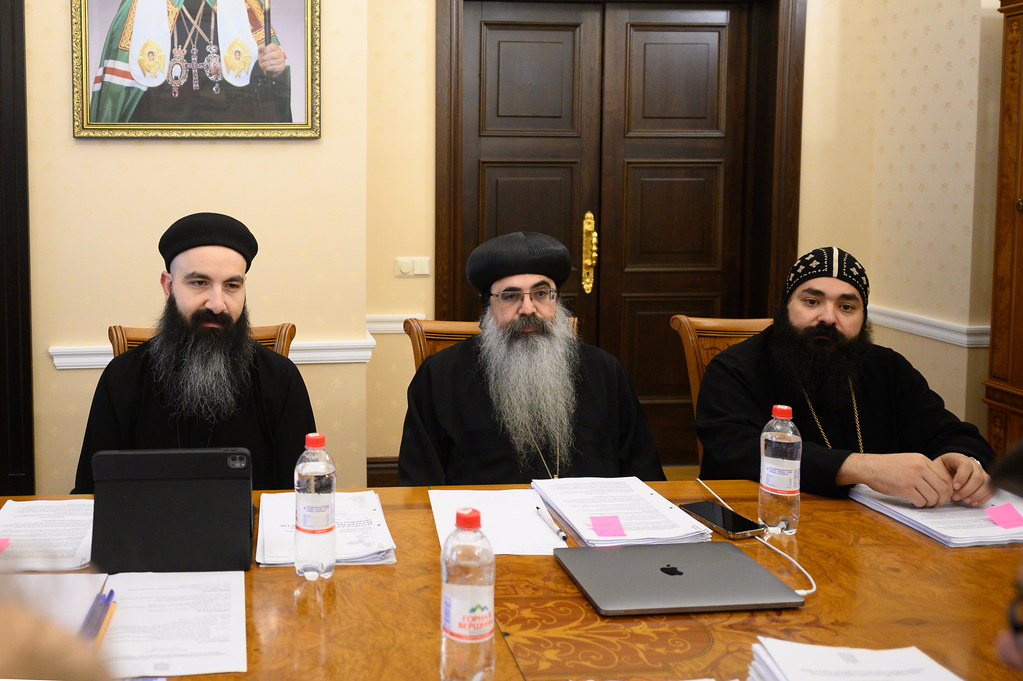
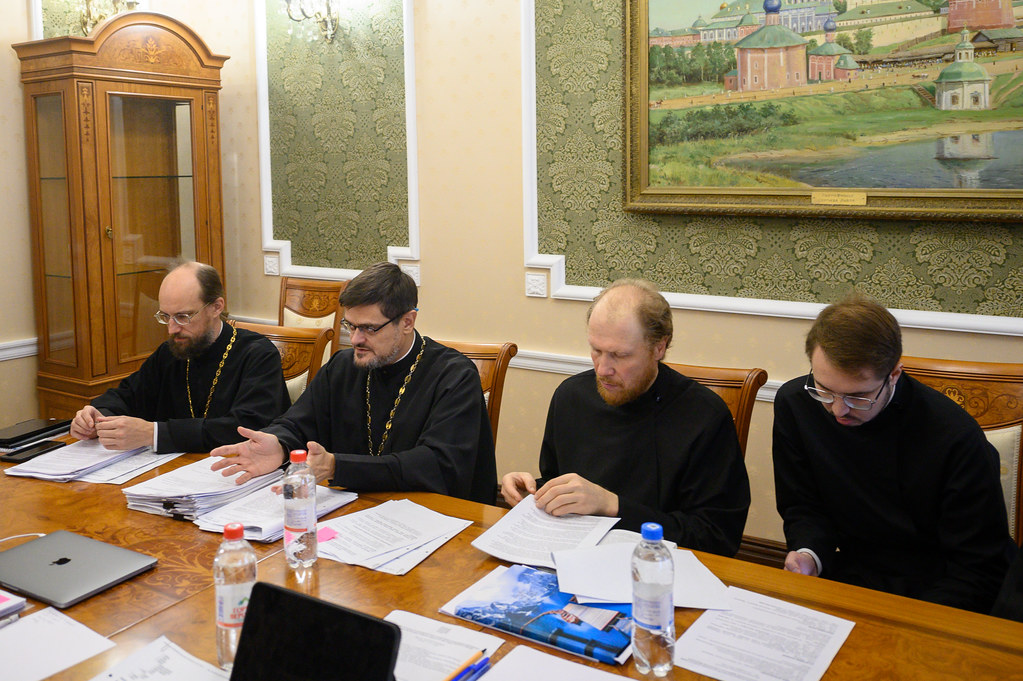
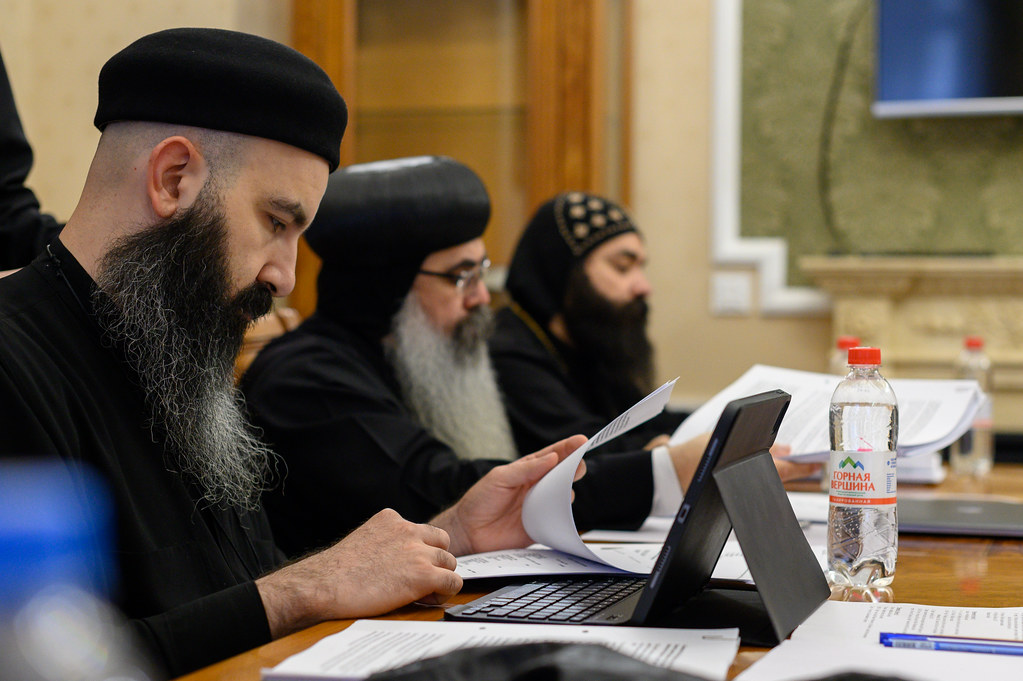

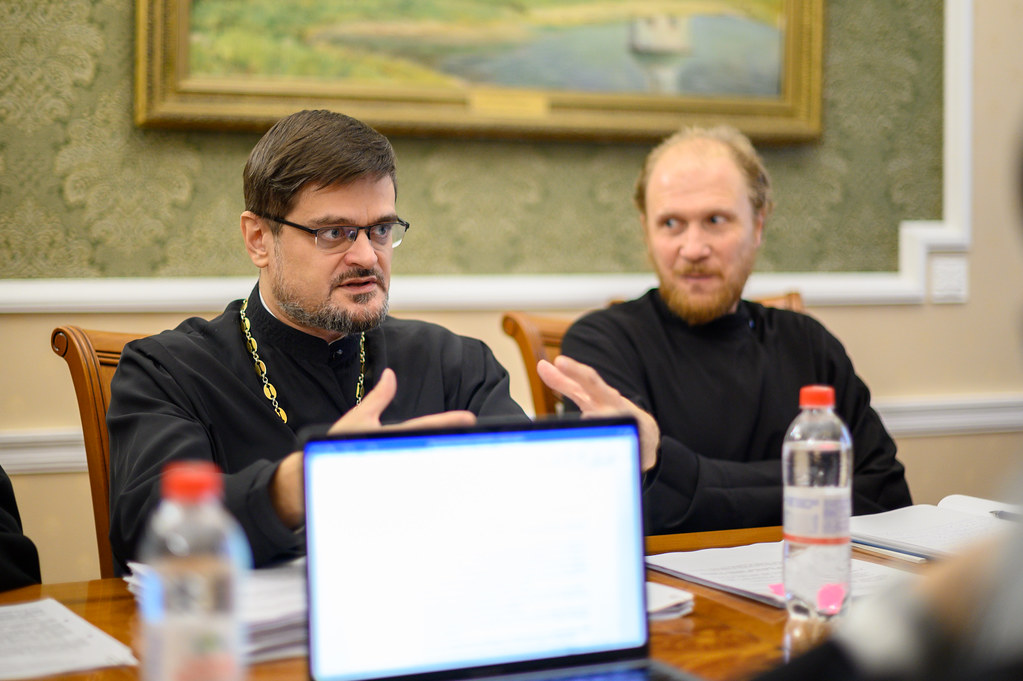
DECR Communication service, 18.10.2023.
On 17th October the second round of theological consultations between the Russian Orthodox Church and the Coptic Church began at the Moscow Theological Academy, reports the press service of the MTA. The conversations are being held with the blessing of His Holiness the Patriarch of Moscow and All Russia Kirill in accordance with the agreements he reached with the primate of the Coptic Church His Holiness Patriarch Tawadros II.
As part of the work of the commission on bilateral cooperation between the Russian Orthodox Church and the Coptic Church there was set up in 2020 a special working group for the development of theological conversations. The members of the working group are: for the Russian Orthodox Church the secretary at the Department for External Church Relations for inter-Christian ties hieromonk Stephan (Igumnov), the deputy rector of study at the MTA Father Pavel Lizgunov and the director of the department of Oriental studies at the MTA deacon Sergei Panteleyev; for the Coptic Church the auxiliary bishop of the Los Angeles metropolitanate bishop Cyrilos and the rector of the Ss. Cyril and Athanasius of Alexandria Coptic Theological Academy Father Macarius Rephel and the representative of the Coptic Church in Russia hieromonk Daoud el-Antoni.
Offering their expertise at the second round of theological conversations for the Moscow Theological Academy were honorary lecturer at the department of theology hegumen Adrian (Pashin) and senior teacher at the department of philology hieromonk Theodore (Yulaev).
At the beginning of the meeting Father Pavel Lizgunov read aloud greetings from the rector of the Moscow Theological Academy and the vicar abbot of the Holy Trinity and Saint Sergius Monastery the bishop of Sergiev Posad and Dmitrov Cyril:
“We are glad to see you at the grace-filled and blessed land of the Holy Trinity which is the Holy Trinity and Saint Sergius Monastery and the Moscow Theological Academy. Our meeting is taking place, on the one hand, at a time of new wars and conflicts in various corners of the globe, and on the other hand at an inspiring time of the widening of contacts between Russia and various parts of the traditional Christian world and above all with the African nations. It is precisely for this reason that we are glad to see an official delegation of the Coptic Orthodox Church. At the present time of apostasy which has spread rapidly and aggressively throughout the world, it is especially important to bring together the endeavours of the Christian world which adheres to traditional values in order to withstand the destructive process of moral degradation and total secularization. We have discussed important issues and established good contacts with the ancient Coptic Church. Genuine cooperation has already begun in the sphere of education and learning. Of special significance is communication in the area of theological thought. Unfortunately, the division between our two Churches goes back over many centuries. Our duty before God in these last times is to do everything within our power to overcome this division, no matter how much effort we may have to exert for this. The first step in this process is to understand honestly, precisely and profoundly what it is that divides us, which theological terminology, formulae and doctrines unite out Churches and which divide us. The sole path towards this is an honest, open and respectful dialogue. And this is why we are so pleased that you have come here. I call down God’s blessing on our theological consultation. I pray to God that our meeting will be blessed by the presence and aid of the Holy Spirit and that it will bring forth good fruit.”
The auxiliary bishop of the Los Angeles metropolitanate and rector of the Ss. Cyril and Athanasius of Alexandria Coptic Theological Academy in the USA bishop Cyrilos said in reply:
“I would like once more to thank you for this heartfelt invitation. We are also grateful that we find ourselves in this blessed place, the centre of theological research and monastic life in Russia. We convey to you greetings from His Holiness the Coptic Patriarch Tawadros II and His Eminence the metropolitan of Los Angeles Serapion. We once more affirm the importance which we attach to this dialogue. You are most likely aware how much importance this issue has for our students of theology and for all our faithful. And I know that through prayer, through the mutual study of our traditions and through dialogue we can attain a better understanding of each other. I believe that since the Council of Chalcedon we have had many centuries in which we have been able to clarify what happened at that time and how better to understand each other. For this we need to know foreign languages, read many books, hold long discussions, and yet I also know that with God’s aid and the intercession of the saints we will be able to attain greater understanding and continue to seek what God’s will is for this. I thank you.”
As the moderator of the session hieromonk Stephan (Igumnov) noted, “the aim of the consultations is to raise in an open and honest way in a fraternal atmosphere difficult theological issues and attempt to resolve them by the joint efforts of both sides.”
Father Stephan reminded the participants of the dialogue that the first round of theological consultations took place from 20th to 24th of January 2020 in Lievelde in the Netherlands when the working group was put together. “The meeting in the Netherlands was quite meaningful and constructive, and at its conclusion a communiqué was put out emphasizing that the theological consultations bore the nature of joint scholarly research, and they did not have the goal of reestablishing eucharistic communion since such tasks can only be set in the context of a pan-Orthodox-pre-Chalcedon dialogue. At the same time, the consultations are aimed at enabling the renewal in the future of the work of the mixed commission on theological dialogue between the Orthodox Church and the ancient Oriental Churches,” he noted.
Father Stephan also emphasized that “for the Russian Orthodox Church the holding of bilateral consultations with the Coptic Church puts into effect a number of corresponding church-wide decisions that were taken as a result of the work of the mixed commission at its culminative stage in 1993 by the Episcopal Council of 1997 and 2000, the Holy Synod and the results of research by the Synodal biblical commission on this particular topic. The participants of the first round which took place in the Netherlands were faced with the task of analyzing the current state of the Orthodox-pre-Chalcedon dialogue, of determining the means of bilateral consultations and the list of issues which are the priority for examining.
It was recognized that within the consultations it was essential to examine the Christological problems mentioned in the Chambesy accords of 1991-1993 and at the preceding unofficial meetings between 1964 and 1971, as well as to study the documents adopted at the level of individual Churches. Special attention ought to be paid to the perception of the heritage of the Ecumenical Councils beginning with Chalcedon, the topic of mutual anathemas and the problem of terminology. One of the reasons which do not allow the Orthodox Churches to accept the documents adopted at Chambesy is their narrow academic approach divorced from the sphere of practical theology. Also relevant for join research are the issues linked to the expression of Christology in the teaching on the sacraments, soteriology, liturgics, hagiology and the traditions of the monastic life and its contribution to the development of theological thought. Moreover, it is important to bear in mind that the consultations are being held between the Russian Orthodox Church and the Coptic Church, which is one of the most ancient and authoritative in the world, and therefore we should not ignore the challenges that are important for both Churches in the modern world, for example, in the sphere of bioethics and pastoral theology. Discussion of these issues and the working out of a common position on them may create a positive background for general theological discussion as a whole.
During the consultations the importance was also recognized of being guided solely by the official theological documents of the Churches and not by the private opinions of theologians, of not limiting ourselves to formal reports by applying all our efforts and not sparing our time for meaningful work by bringing on board leading specialists in the relevant areas of theological scholarship. The consultations are in the main of scholarly interest. Their aim is to enable common dialogue.”
At the conclusion of the work of the first session of theological consultations an excursion was arranged for the delegation of the Coptic Church to look round the Holy Trinity and Saint Sergius Monastery and the Moscow Theological Academy, during which the guests became better acquainted with the history of the monastic house founded by Saint Sergius as well as with the details of theological education in Russia.
After lunch a second working session was held which was attended by the rector of the Moscow Theological Academy the bishop of Sergiev Posad and Dmitrov Cyril. The session touched upon issues tied to an understanding of the theological terminology in both the Orthodox and pre-Chalcedon traditions.
On 18th October the working group will continue the second round of theological consultations. The two sessions will examine a number of issues on the meeting’s agenda and a conclusion will be formulated on the basis of the results of the present dialogue.
